
Building Healthy Writing Habits for Plant Scientists
Blog, EducationEffective writing is an essential skill for plant scientists, playing a crucial role in various aspects of their professional lives. The skill of scientific writing is first developed during an undergraduate’s degree - where they face the challenges of writing a first protocol or thesis - this journey…

Tips From a Final-year PhD Student
Blog, EducationThe journey to start a PhD is interesting but can also be challenging for some. Here are a few tips that can be helpful to avoid setbacks in mental health and maintain a peaceful life.
This article is generally applicable to all but especially written in the context of plant biology students. Some…

An Interview with Professor Gitta Coaker: A Resilient Researcher Shaping the Future of Many in the Field of Plant-microbe Interactions
Blog, Community
Professor Gitta Coaker is the John and Joan Fiddyment Endowed Chair in Agriculture at the University of California, Davis. She joined the faculty at the University of California, Davis in 2007. Dr. Coaker’s research program focuses on understanding kinase-mediated immune signaling and pathogen…

Plantae Presents: Getting the Most Out of Your PhD
Blog, Education, Plantae WebinarsPlantae Presents: Getting the Most Out of Your PhD
Featuring Manoj Prasad, Jian You Wang, Somnath Koley, and Justine Braguy
When: September 20, 2024, at
7:00 AM PDT | 10:00 AM EDT | 3:00 PM BST | 10:00 PM Beijing
About this Webinar
Starting a PhD is both exciting and hard, with many potential…
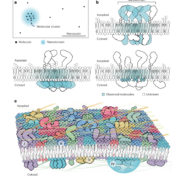
Review: Guidelines for studying and naming plant plasma-membrane domains
Plant Science Research WeeklyNumerous studies have highlighted the critical importance of plasma membrane heterogeneities in regulating cell functions, leading to a proliferation of overlapping and contradictory terminologies. Here, Jaillais and others in the field propose a new system of nomenclature. It really is a must-read for…
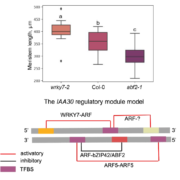
Mechanism of auxin-dependent gene regulation through composite auxin response elements
Plant Science Research WeeklyAuxin signaling influences plant growth and development by controlling gene expression, often through binding of transcription factors from the Auxin Response Factor (ARF) family to ARF elements (AuxRE) present in the promoters of auxin-responsive genes. However, given that auxin signaling produces many…
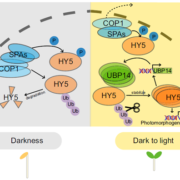
UBIQUITIN-SPECIFIC PROTEASE (UBP14) interacts with HY5 to promote photomorphogenesis under dark-to-light conditions
Plant Science Research WeeklyELONGATED HYPOCOTYL5 (HY5) is a transcription factor that regulates about one-third of Arabidopsis genes, affecting growth and development of seedlings through light and hormone signaling. UBIQUITIN-SPECIFIC PROTEASE (UBP14) is a deubiquitinating enzyme that removes ubiquitin from substrate proteins.…
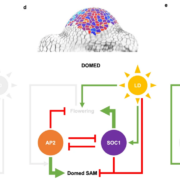
APETALA2 coordinates shoot apical meristem shape and identity during floral transition
Plant Science Research WeeklyThe study by Bertran Garcia de Olalla et al. investigated the role of the APETALA2 (AP2) transcription factor in Arabidopsis, particularly its influence on the shoot apical meristem (SAM) during the transition from vegetative to reproductive growth. AP2 is essential for the rapid increase in SAM height…
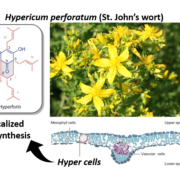
Single cell transcriptomics aids gene discovery of complex natural product biosynthesis
Plant Science Research WeeklyFrom an ancient Greek cure-all to a modern treatment for mild depression, Hypericum perforatum (St. John’s wort) is a fascinating weed. Its leaves and flowers produce hyperforin, a metabolite derived from the isoprenoid pathway, which acts as a serotonin reuptake inhibitor. Despite partial genome and…

